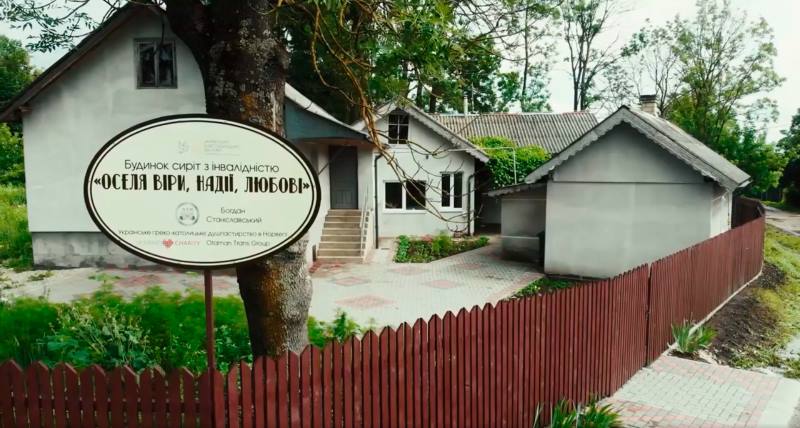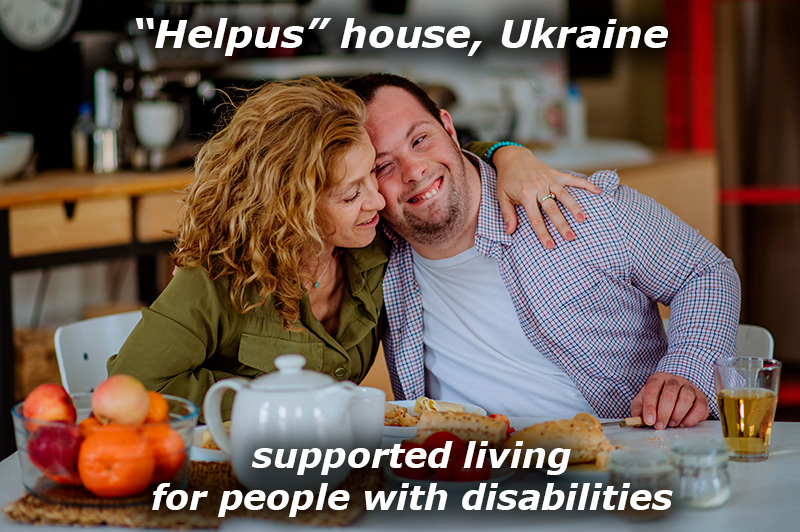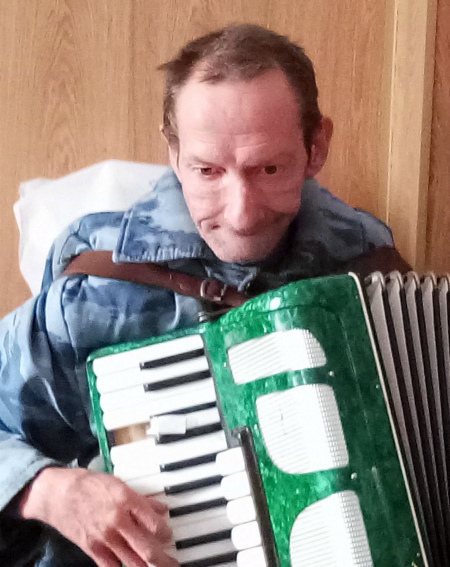
The problems of people with mental disorders are of little concern to the townsfolk. This is not surprising, since the times of the USSR they were hidden in the most remote villages, where they eked out a rather miserable and very short existence. Most often, these guys died in early childhood. Even in the maternity hospital, doctors urged the mother to abandon “such” a child, because she would still be able to give birth to a “normal” one.
And abnormal children sometimes grow up and become abnormal adults who see only breech walls and the meager attention of staff. By the way, employees, by someone's intent, need very little, as well as living space for these "decommissioned" people. And it seems that the Soviet Union has remained in the distant past, and it seems that politicians are vying with each other shouting about human rights, but in fact the inhabitants of psycho-neurological institution (PNI) survive in God-forgotten places where cigarettes are the main currency.
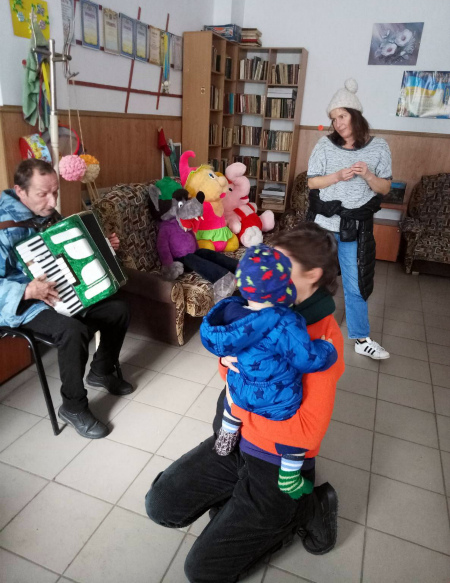
Unforgettable tour of the psycho-neurological institution in Zaporizhzhia region
When you get to such places, you are overwhelmed with strong emotions, they are very different and complex, you need time to rethink them. Screaming, cursing, silly mumbling, awkward flirting, strong smells, spontaneous creativity and intellectual conversations. Strange bodies, strange voices, unconcealed emotions. Curiosity replaces fear and disgust, the eyes get used to unusual images, the ears begin to distinguish unintelligible speech, the sense of smell becomes dull, the mind begins to see People!
And then anger comes, a feeling of powerlessness and a desire to show these guys real life. Pull them out of the gray walls and turn them to face the sun. The desire to act awakens the rational principle. And then the mind begins to "put everything on the shelves."
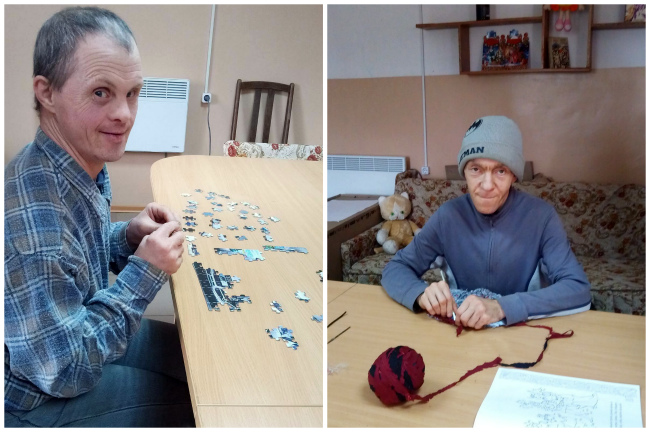
Common problems of all Ukrainian PNIs
• Large crowding. The number of people per square meter does not hold water. Once upon a time there were norms and standards of the hostel. Perhaps they were formed back in the days when people lived in communal apartments. A large concentration of people with mental disabilities is not just a problem - it is a crime.
• Formal approach to therapy. From time to time, some of the wards are sent to a psychiatric clinic, but rather in order to fill empty beds, and not for real treatment and rehabilitation. Of course, everything may look pretty “clear” on papers, but in fact, everything is very sad. Medical support requires resources and a slightly different approach to people and their needs.
• Remoteness of all PNIs. There are seriously ill people in every psycho-neurological institution. They need not only routine life-sustaining therapy, but also emergency medical care. In such places it is very difficult to get it, and in a snowy winter it is almost impossible. There is such a sign: if the road ends, then after 10 kilometers there will be a PNI.
• "Dust in the eyes". In all establishments we were met by hospitable directors. Somewhere they were treated to tea, somewhere they joked, somewhere they sighed heavily, but they demonstrated their psycho-neurological institutions as institutions in which there are various activities and hobbies of the group. We saw crafts, certificates, exercise equipment, tennis tables, etc. Only bad luck, all the premises were closed. Some rooms were opened in an emergency and filled with inhabitants. The brightest picture was in one of the PNI, where about 20 people were sitting and watching TV ... which doesn't work. 20 (or more) badly walking men in a small stuffy room sit and stare at a black square on the wall.
• A catastrophic shortage of personnel. No, of course everything is according to the staffing table, but it is not clear who and when compiled this schedule. It is the shortage of personnel that does not allow taking out bedridden wards to fresh air, organizing activities for people, and also poses a danger to nannies working there. The night nanny remains alone for 30 or more men, some of whom may be aggressive.
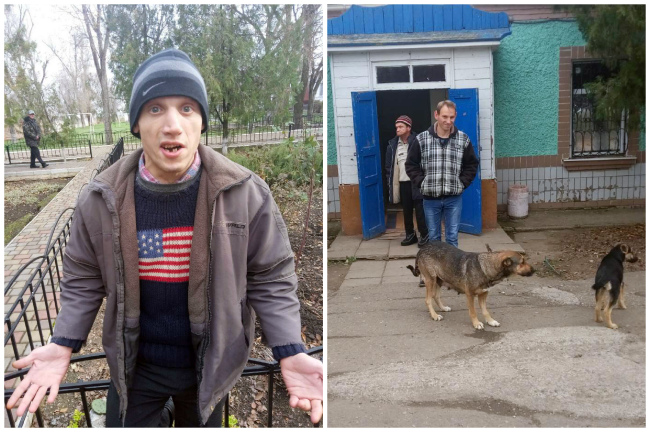
PNI - an anachronism, a Soviet legacy or an institution in demand
Of course, ppsycho-neurological institutions in the form in which they are now have nothing to do with the concept of “human rights”. And yet, today this service is needed. Only in the Zaporizhzhia region, more than 60 people are in line, and taking into account the closure of the Chernihiv PNI, the need has increased even more. In addition, all existing psycho-neurological institutions are already heavily overpopulated.
Social integration of people with mental disabilities
Due to malicious intent or criminal negligence, or perhaps due to troubled times, people who ended up in PNI in the dashing 90s almost automatically received the status of incapacity. This deprived them of almost all rights and a chance to regain the role of a full-fledged member of society.
But even able-bodied people, once in the state walls, cannot fully exercise their rights. Many of them can work on farms, engage in simple construction work, various manual labor, keep cleanliness, take care of animals, etc., but in a psycho-neurological institution they can only drink chifir, smoke and watch TV.
People with mental disabilities in the civilized world
In the civilized world, the problem is solved in a complex way. Firstly, if a child with a disability is born in a family, parents try to integrate it into society as much as possible, and not write it off “out of sight”. Specialists and assistants work with children, children can attend kindergarten and school, staying in the family and not chaining parents to round-the-clock duty near a child with a disability. The state creates services that relieve the parents of a special child, allowing him to live in his own or foster family, and not in a psycho-neurological institution.
An adult with a disability can live in a separate apartment or with his/her own guardian. There is also the practice of special people living in small group homes. They can be located both in private houses and in ordinary city apartments. Assistants help the residents of the lodges and their caregivers. People are served in a regular clinic, they can perform various jobs, in most cases they manage their money on their own.

What can we do today in Ukraine, in the Zaporizhzhia region?
We propose not to "reinvent the wheel", but to adopt world experience. The PNI reform is a planned work that will last for 25-30 years. In the meantime, we can create small group houses where 4-7 people can live, doing useful activities, in conditions as close as possible to family ones.
There are such houses in Ivano-Frankivsk and Zaporizhzhia regions. True, our Western colleagues managed to secure government funding. In the Zaporizhzhia region, children live with the support of CF "Happy Child" and "Helpus", as well as thanks to donors and volunteers from all over the world.
In psycho-neurological institutions, state funding is approximately $ 247-302 per person. In the wild, a capable person with a mental disability receives about $ 55 For a quality life in a group house, $ 220 is enough.
And while we fight the officials, the test houses can work.
But this requires a stable financial support - for 7 people it is $ 961 per month.
You will be personally acquainted with our guys, watch their progress. Together with us, be upset when misunderstandings and insults arise (and they will certainly be). And together we will create a precedent that will make the PNI reform a reality and bring Ukraine closer to a civilized world where human rights are not empty words.


